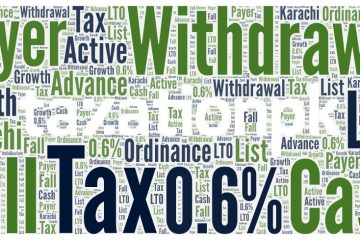Taxation is a necessary evil. It is a way for governments to raise revenue to fund essential services such as education, healthcare, and infrastructure. However, taxation can also be seen as a form of accountability. When citizens pay taxes, they are essentially giving their consent to the government to spend their money on these services. This gives citizens a say in how their government is run and helps to ensure that the government is held accountable for its spending.
In Pakistan, taxation has traditionally been seen as a burden rather than a benefit. This is partly due to the fact that the tax system is complex and difficult to understand. It is also due to the fact that the tax burden is often disproportionately borne by the poor and middle class. However, there are a number of ways in which taxation can actually benefit Pakistan.
One of the most important benefits of taxation is that it can help to reduce poverty. When governments collect taxes, they can use this money to fund programs that help the poor, such as education, healthcare, and job training. This can help to break the cycle of poverty and give people the opportunity to improve their lives.
Taxation can also help to improve infrastructure. When governments collect taxes, they can use this money to build roads, bridges, and other infrastructure projects. This can help to improve the quality of life for everyone in Pakistan and make it easier for businesses to operate.
Taxation can also help to promote economic growth. When governments collect taxes, they can use this money to invest in education, healthcare, and research and development. This can help to create a more skilled workforce and encourage innovation, which can lead to economic growth.
Of course, taxation is not without its drawbacks. It can be a burden on businesses and individuals, and it can be difficult to collect taxes from everyone who owes them. However, the benefits of taxation outweigh the drawbacks. Taxation can help to reduce poverty, improve infrastructure, and promote economic growth. It is an essential part of any modern economy.
Here are some additional benefits of taxation in Pakistan:
- Taxation can help to reduce inequality. When governments collect taxes from the wealthy, they can use this money to fund programs that benefit the poor, such as education, healthcare, and job training. This can help to create a more equitable society.
- Taxation can help to protect the environment. When governments collect taxes on pollution, they can use this money to fund environmental programs, such as clean air and water initiatives. This can help to improve the quality of life for everyone in Pakistan and protect the environment for future generations.
- Taxation can help to promote democracy. When governments are accountable to their citizens, they are more likely to be responsive to the needs of the people. Taxation can help to make governments more accountable by giving citizens a say in how their money is spent.
In conclusion, taxation can be a powerful tool for improving the lives of citizens. When governments collect taxes and use them wisely, they can help to reduce poverty, improve infrastructure, promote economic growth, reduce inequality, protect the environment, and promote democracy.






